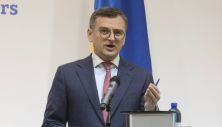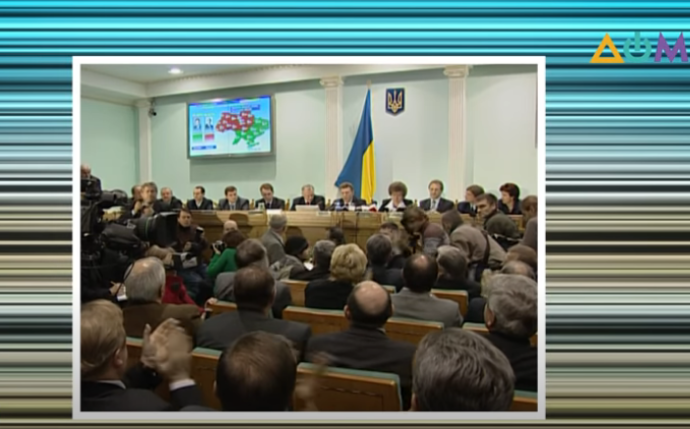In 2004, Ruslana’s “Wild Dances” brought Ukraine victory at the Eurovision Song Contest. The Orange Revolution also took place, and Ukrainian presidential candidates used “dirty” political technologies. In addition, the year was marked by changes in the information sphere – the first flat-screen TVs and slider phones appeared.
We tell about it in the new issue of the documentary series “30 years of Independence” on the UA TV channel.
Trembitas, skins, crazy rhythm – in 2004 Ukrainians, and then the whole world learned “Wild Dances”. Singer Ruslana Lyzhychko wrote a lively composition based on Hutsul motifs. Ukrainian “Amazon” was given 280 from different countries – a real record for all 49 years of the competition at that time.
The most desirable gadgets of the year cost as much as 20 Ukrainian pensions and 10 salaries, ie a thousand dollars – in fashion slider phones. This is a prototype of a smartphone – with a color screen and a bunch of features.
The TV has stopped being a box – you can’t put anything on it. The first flat models are called “plasma” after the technology, and they cost like an old car. But the expression “bought plasma” for the coming years will be a sign of extraordinary prosperity.
800 carriages of shells – all this one day in May begins to burn, fly and explode. The epicenter of the “armed catastrophe” was the village of Novobohdanivka near Melitopol.
The height of the flames was 300 meters, the shells exploded every five seconds. Residents fled anywhere, just to stay away from warehouses. People died not only from weapons, but also from horror. Three sappers were killed during demining.
Everything was extinguished only two weeks later, when the fire was approaching the “Hurricane” and “Grad” volley fire systems.
But the fires will continue in other warehouses: in 2008 – in Lozova, in 2015 – Svatove, in 2017 – Balaklia and Kalynivka, in 2018 – Ichnia. Conclusions about the reasons will be different – from the human factor to sabotage.
The autumn of 2004 was the peak of the election campaign. The country has learned a new word – dioxin. This toxin was found in the blood of one of the favorites of the “race”. The question of who poisoned Viktor Yushchenko is now for years the same painful question of Ukrainian politics as “who killed Gongadze?”
“On September 16, Viktor Andriyovych returned from Austria on the European Square, a rally took place. When people saw the appearance, and I still remember people’s faces, it was a shock” – said Roman Bezsmertny, head of Viktor Yushchenko election headquarters.
A few days before the first round of elections, Vladimir Putin not only arrived in Kyiv, but also held a “direct line” with Ukrainians – this is usually suitable only for his fellow citizens.
Putin will be the first to congratulate Yanukovych on his victory in the second round, in which he and Yushchenko will remain, as expected, alone. Yanukovych even records a triumphant appeal. In fact, the celebrations were premature. The opposition claimed that the election had been rigged by interfering with the Central Election Commission server.
“Both then and still, the election results in Ukraine are established not on the basis of preliminary information, but on the basis of those paper protocols brought by members of territorial district election commissions” – said Maryna Stavniychuk, the Representative of the President of Ukraine to the Constitutional Court of Ukraine (2007-2010).
Later began what went down in history as the Orange Revolution.














